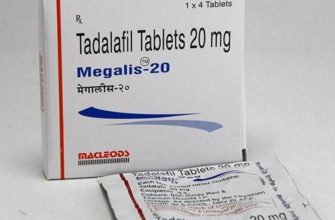Prednisone, while highly effective for many conditions, can impact kidney function. Long-term use, especially at high doses, increases the risk of several kidney-related issues. This includes increased blood pressure, which strains the kidneys, and fluid retention, potentially leading to edema and further kidney stress.
Specific problems you should be aware of include decreased glomerular filtration rate (GFR), a measure of kidney function, and the development of steroid-induced nephropathy – a condition marked by kidney inflammation and scarring. Your doctor will monitor your GFR and other kidney markers during prednisone treatment to detect any problems early.
Maintaining adequate hydration is crucial while taking prednisone to help your kidneys flush out excess fluids and waste products. Your physician will likely also advise on monitoring your blood pressure and restricting your salt intake, both known to lessen the potential burden on your kidneys. Regular checkups to assess kidney function are also strongly recommended during and after treatment.
Remember, individual responses to prednisone vary. Open communication with your healthcare provider is key to managing potential risks and ensuring your kidney health remains a priority throughout your treatment. Don’t hesitate to discuss any concerns you have about kidney function during your prednisone therapy.
- Does Prednisone Cause Kidney Problems?
- Potential Kidney Effects of Prednisone
- Minimizing Kidney Risks
- Who Should Be Extra Cautious?
- Prednisone’s Mechanism of Action and Potential Renal Effects
- Acute Renal Failure Associated with Prednisone Use: Case Studies
- Case Study 1: Pre-existing Nephropathy
- Case Study 2: Drug Interaction
- Predisposing Factors Increasing Kidney Risk with Prednisone
- Long-Term Prednisone Use and Chronic Kidney Disease: Evidence and Studies
- Recognizing Symptoms of Prednisone-Induced Kidney Problems
- Managing Kidney Risk While on Prednisone: Lifestyle and Medical Advice
- Dietary Adjustments
- Regular Monitoring and Communication
- Additional Lifestyle Recommendations
- Medication Management
- Further Considerations
Does Prednisone Cause Kidney Problems?
Prednisone, while effective for many conditions, can indeed impact kidney function. The risk depends on factors like dosage, duration of use, and your pre-existing health.
Potential Kidney Effects of Prednisone
- Increased Blood Pressure: Prednisone can elevate blood pressure, potentially straining the kidneys.
- Fluid Retention: The medication can cause your body to retain fluid, leading to increased blood volume and putting extra pressure on your kidneys.
- Electrolyte Imbalances: Prednisone can disrupt potassium, sodium, and calcium levels, which are vital for kidney function.
- Acute Kidney Injury (AKI): In some cases, high doses or prolonged use may contribute to AKI, though this is less common than other side effects. Usually, AKI resolves once prednisone is discontinued.
- Pre-existing Kidney Disease Exacerbation: If you already have kidney problems, prednisone may worsen your condition. Careful monitoring is necessary.
Minimizing Kidney Risks
- Low dose & short term treatment: Your doctor will prescribe the lowest effective dose for the shortest possible duration.
- Regular monitoring: Blood tests, including kidney function tests (creatinine and GFR), are crucial for monitoring your kidneys while on prednisone.
- Hydration: Drink plenty of water to help flush out excess fluid.
- Dietary adjustments: Your doctor may recommend a diet low in sodium and high in potassium to offset potential imbalances.
- Open communication with your doctor: Report any changes in urine output, swelling, or other concerning symptoms promptly.
Who Should Be Extra Cautious?
Individuals with pre-existing kidney disease, diabetes, heart failure, or hypertension should discuss the risks of prednisone with their physician before starting treatment. These conditions increase the likelihood of negative kidney effects.
Prednisone’s Mechanism of Action and Potential Renal Effects
Prednisone, a glucocorticoid, reduces inflammation by binding to intracellular receptors, influencing gene transcription. This process decreases the production of inflammatory mediators. However, long-term or high-dose prednisone use can lead to several renal complications.
Increased blood pressure is a common side effect. Prednisone can retain sodium and water, elevating blood volume and consequently, blood pressure. This increased pressure strains the kidneys.
Prednisone can also induce hyperglycemia, potentially damaging kidney cells through advanced glycation end product (AGE) formation. High blood sugar contributes to kidney damage over time.
Furthermore, prednisone can cause proteinuria, meaning protein leaks into the urine. This indicates kidney damage and impaired glomerular filtration. Persistent proteinuria warrants careful monitoring.
Prednisone-induced steroid nephropathy, a rare but serious condition, involves damage to the glomeruli. This can lead to acute or chronic kidney failure. Early detection is key.
Regular monitoring of blood pressure, blood glucose, and urine protein levels is recommended for individuals using prednisone, especially those with pre-existing kidney conditions. Consult your doctor immediately if you experience any concerning symptoms like swelling, changes in urination, or persistent fatigue.
Acute Renal Failure Associated with Prednisone Use: Case Studies
While prednisone rarely directly causes acute renal failure (ARF), it can exacerbate underlying kidney conditions or interact with other medications, leading to ARF. Let’s examine two illustrative cases.
Case Study 1: Pre-existing Nephropathy
A 68-year-old woman with diagnosed diabetic nephropathy began prednisone treatment for severe rheumatoid arthritis. Her creatinine levels, initially mildly elevated, rapidly increased after two weeks of prednisone (20mg daily). This coincided with a marked increase in blood pressure and fluid retention, indicating a decline in kidney function. Prednisone was stopped. Aggressive hydration and blood pressure control were implemented, along with adjustments to other medications. Her creatinine levels gradually normalized, highlighting the importance of careful monitoring in patients with pre-existing kidney disease on prednisone.
Case Study 2: Drug Interaction
A 55-year-old man with a history of hypertension received prednisone for a severe allergic reaction, concurrently taking nonsteroidal anti-inflammatory drugs (NSAIDs) for pain management. Within days, he developed oliguria (reduced urine output) and elevated creatinine. This scenario indicates a potential interaction between prednisone and NSAIDs, both of which can negatively affect kidney blood flow and function. Discontinuation of the NSAIDs, coupled with close monitoring and supportive care, resolved the ARF. This case underscores the need for a thorough medication review before initiating prednisone therapy, especially in individuals with existing cardiovascular or renal issues.
These examples underscore the need for careful patient selection and vigilant monitoring during prednisone treatment. Regular monitoring of kidney function, including creatinine and blood urea nitrogen (BUN) levels, is crucial, particularly in high-risk patients. Prompt identification and management of potential complications, such as fluid retention and hypertension, are also vital for preventing ARF.
Predisposing Factors Increasing Kidney Risk with Prednisone
High doses of prednisone and long-term use significantly increase your risk of kidney problems. Several factors amplify this risk.
Pre-existing kidney disease: Individuals already experiencing kidney issues, such as chronic kidney disease (CKD) or diabetic nephropathy, face heightened susceptibility to prednisone-induced kidney damage. Careful monitoring of kidney function is paramount in these cases.
Diabetes: Prednisone can worsen blood sugar control, exacerbating diabetic nephropathy. This is a primary reason for increased kidney risk in diabetic patients on prednisone. Maintaining tight glycemic control is critical.
High blood pressure (Hypertension): Prednisone can elevate blood pressure, straining the kidneys. Existing hypertension significantly increases the risk of kidney damage. Managing blood pressure effectively is crucial.
Heart failure: Compromised heart function can reduce blood flow to the kidneys, making them more vulnerable to prednisone’s effects. Close monitoring of both heart and kidney function is necessary.
Older age: Kidney function naturally declines with age, making older adults more susceptible to prednisone-induced kidney damage. Regular kidney function tests are recommended.
Concurrent medications: Some medications, when combined with prednisone, can increase the risk of kidney complications. Always inform your doctor of all medications you are taking.
Note: This information is for educational purposes and does not constitute medical advice. Always consult your physician regarding prednisone use and its potential impact on your individual health.
Long-Term Prednisone Use and Chronic Kidney Disease: Evidence and Studies
Studies show a correlation between long-term prednisone use and an increased risk of chronic kidney disease (CKD). This risk stems from several mechanisms, including the drug’s impact on blood pressure and blood sugar.
One study published in the American Journal of Kidney Diseases demonstrated a statistically significant association between cumulative prednisone dose and the development of CKD. Patients receiving higher cumulative doses showed a greater incidence of kidney damage.
Another research paper, featured in the Nephrology Dialysis Transplantation journal, linked long-term prednisone treatment to glomerulosclerosis, a condition causing scarring of the kidney’s filtering units, potentially leading to CKD. The severity of glomerulosclerosis correlated with the duration of prednisone therapy.
While these studies indicate a heightened risk, it’s crucial to remember individual responses vary. Factors like pre-existing kidney conditions, overall health, and the dosage and duration of prednisone treatment all play a role. Regular kidney function monitoring is therefore recommended for patients on long-term prednisone therapy.
Clinicians should carefully weigh the benefits of prednisone against the potential kidney risks, particularly in individuals with pre-existing kidney problems or risk factors for CKD. Alternative treatments should be considered where appropriate.
Further research continues to refine our understanding of the relationship between prednisone and CKD. Monitoring for early signs of kidney dysfunction, including changes in urine output, blood pressure, and blood tests, is paramount for patients undergoing long-term prednisone treatment. Close collaboration between patients and their healthcare providers is essential for managing this risk.
Recognizing Symptoms of Prednisone-Induced Kidney Problems
Pay close attention to your body. Prednisone can affect your kidneys, sometimes subtly. Notice any changes, however small.
Kidney problems often manifest as changes in urination. Look for decreased urine output (oliguria) or increased frequency. Changes in urine color–cloudy, dark, or bloody–also warrant immediate medical attention.
Swelling (edema) is another significant sign. This can occur in your face, ankles, or feet. Sudden weight gain, often linked to fluid retention, may accompany this swelling.
Fatigue and weakness are common symptoms, potentially indicating your kidneys aren’t functioning optimally. Persistent nausea or vomiting can also be a symptom.
High blood pressure (hypertension) is a serious complication linked to kidney damage. Regular blood pressure monitoring is critical. This is a common side effect.
| Symptom | Description | Action |
|---|---|---|
| Decreased urine output | Producing less urine than usual | Contact your doctor immediately. |
| Changes in urine color | Dark, cloudy, or bloody urine | Seek medical attention promptly. |
| Edema (Swelling) | Swelling in face, ankles, or feet | Report to your doctor. |
| Fatigue and Weakness | Unusual tiredness and lack of energy | Discuss with your doctor. |
| Nausea and Vomiting | Persistent nausea or vomiting | Contact your doctor for assessment. |
| High Blood Pressure | Elevated blood pressure readings | Monitor regularly and report changes. |
Remember: This information is for guidance only. Early detection is crucial. Consult your doctor immediately if you experience any of these symptoms while taking prednisone.
Managing Kidney Risk While on Prednisone: Lifestyle and Medical Advice
Maintain adequate hydration. Drink plenty of water throughout the day to help your kidneys flush out waste products. Aim for at least eight glasses, adjusting based on your activity level and climate.
Dietary Adjustments
Follow a low-sodium diet. Reduce processed foods, canned goods, and fast food, as these are typically high in sodium. Sodium contributes to fluid retention, potentially stressing your kidneys. Prioritize fresh fruits, vegetables, and lean proteins.
- Limit red meat consumption.
- Choose whole grains over refined grains.
- Increase your intake of potassium-rich foods like bananas and sweet potatoes (unless your doctor advises otherwise).
Monitor your blood pressure. Regularly check your blood pressure at home or with your doctor. High blood pressure significantly increases the strain on your kidneys. Work with your physician to manage it effectively through medication or lifestyle changes.
Regular Monitoring and Communication
Attend all scheduled appointments with your doctor and nephrologist (kidney specialist), if one is assigned. Regular blood and urine tests will monitor your kidney function and allow for timely intervention if any issues arise.
- Communicate any changes in your health, such as swelling, changes in urination, or unexplained fatigue, to your healthcare provider immediately.
- Openly discuss your concerns and ask questions about your medication and its potential effects on your kidneys.
Additional Lifestyle Recommendations
- Maintain a healthy weight. Excess weight puts additional stress on your kidneys. Discuss weight management strategies with your doctor.
- Engage in regular, moderate-intensity exercise. Physical activity improves overall health and can aid in managing blood pressure and weight. Consult your doctor before starting any new exercise program.
- Avoid smoking. Smoking damages blood vessels, affecting kidney health.
- Limit alcohol consumption. Excessive alcohol intake can harm your kidneys. Follow recommended guidelines for safe alcohol consumption.
Medication Management
Never adjust your prednisone dosage without consulting your doctor. Sudden changes can be harmful. Work closely with your physician to develop a safe tapering schedule when it’s time to reduce or discontinue the medication.
Further Considerations
Your individual risk factors will influence your kidney health while on prednisone. Age, pre-existing kidney conditions, and other medications you take all play a role. Close collaboration with your healthcare team is crucial for personalized management.






